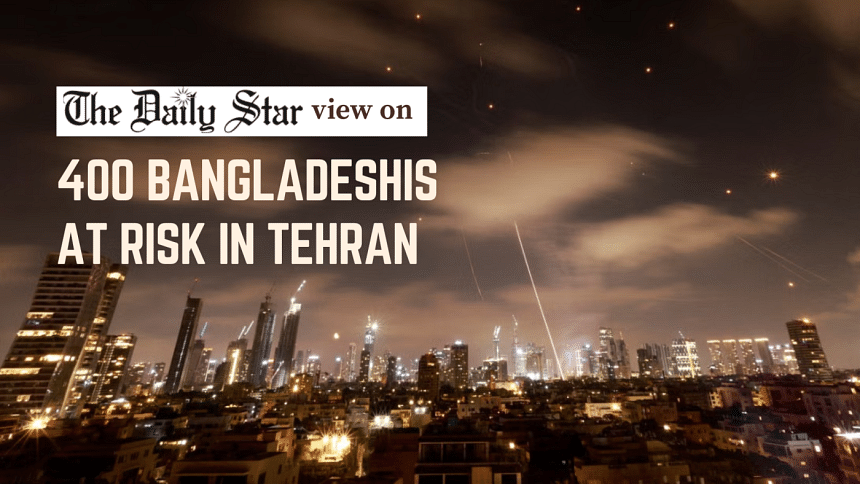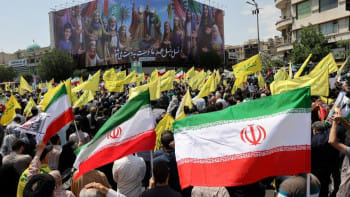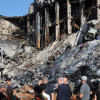Bangladesh must act swiftly to protect its citizens in Iran

The continued intensification of the Israel-Iran conflict since Israel's attack on Iran on June 13 is extremely alarming. One would have hoped that cooler heads would have prevailed by now, and that the international community—particularly the more influential countries—would have united to de-escalate the situation. But far from it, the two countries have continued to exchange attacks, with the use of increasingly sophisticated and destructive weaponry. Meanwhile, not only has the West lent its full and unwavering support to Israel, but there are rumours that the US may become directly involved in Israel's attacks on Iran, further increasing the risk of drawing other powers into the conflict.
Beyond the deaths and destructions on the grounds, the conflict has already begun to exact a far wider regional and global toll. Oil and energy prices have shown significant volatility, and supply chain disruptions may soon have further negative impacts on an already weakened global economy. On top of that, with US President Donald Trump warning people to evacuate Iran's capital, Tehran, and Israel intensifying its targeting of the city, foreign nationals—including diplomats—have been put in harm's way. Among them are about 400 Bangladeshis, including embassy officials, staff members, and their families. Reportedly, amid growing threats of targeted strikes, Bangladesh's ambassador to Iran has been forced to leave his residence in Tehran and take shelter in a more secure location. And after the residence of at least one Bangladeshi embassy official was destroyed, all Bangladeshi nationals have left their previous locations and taken shelter in various parts of the city.
Despite this relocation, it is clear that Bangladeshi nationals in Iran, numbering around 2,000, continue to face grave threats. India has already managed to relocate its citizens to safer areas within Iran. Pakistan has opened its border with Iran, giving Pakistanis wishing to leave a way out. China, too, has successfully evacuated its nationals. Therefore, our government also needs to consider the best course of action to ensure the safety of Bangladeshis there. If necessary, it should reach out to other governments or actors that can either help ensure their safety or assist in evacuating them.
But until this conflict is brought to an end, its impact will continue to escalate, with increasingly dire consequences not only for the region but for the world as a whole. Recognising this, all other countries must refrain from engaging in any acts of aggression, and must also engage with Iran and Israel and convince them to cease all attacks against each other. The international community must not allow this conflict to spiral any further.


 For all latest news, follow The Daily Star's Google News channel.
For all latest news, follow The Daily Star's Google News channel. 






Comments